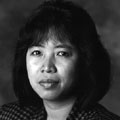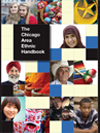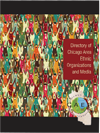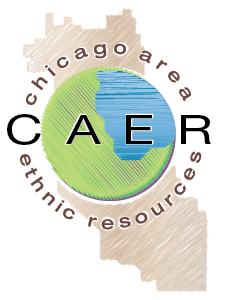-
Metamorphosis
By Ngoan Le

I was born in South Vietnam after my family fled from the North, following the installation of the communist government in Hanoi. As a child growing up in an extended family, comprising my grandmother (the matriarch), aunts, uncles and many cousins in addition to my own immediate family of six, I did not know we stayed together and shared cramped quarters because we were refugees with limited resources.
Our family spoke with a Northern accent, so the neighbors understood we were not “native.” Dalat, where we settled, however, was a resort town where people came from everywhere, so we didnʼt stand out.
The adults in my family often talked about their past in the North and the relatives who still lived there. I read books about the North and dreamed of the time I could travel there to visit places where the history of Vietnam and my family began.
Unlike the adults in my family, I was a native of the South, because Dalat was my birthplace and where I grew into a teenager. I have many fond memories of my walk to school every morning in the fog and strolls with my friends around the lake in the middle of the town. I also have sad memories, living in a war-torn country where the sounds of bullets, fighter jets and artillery were everpresent. There were times we went to bed not knowing if we would be alive the next morning. We went to many funerals, of friends who were drafted in the military.
As I was ending my first year at the University of Saigon, the communist government of Hanoi gained control of South Vietnam. Dalat already had fallen in March 1975, and by April 29, my family once again found ourselves refugees. We fled from Dalat and then again from Saigon, leaving behind everything we owned and all the people we knew. We didnʼt even have a chance to say good-bye.
We left Saigon on a barge, on the chaotic final day before the takeover. Hundreds of refugees crowded on the floating platform, not knowing how we would be rescued. A ship picked us up and took us to a refugee camp in the Philippines. After a few short days, we were transferred to Wake Island, where we spent two months before being taken to a third camp at Ft. Chaffee, Ark., for a short stay. In the refugee camps, we learned to live with the humiliation of having to stand in line for food. When there was not enough, we simply went hungry. Not knowing what the future would hold for us, we spent our days trying to be productive. I volunteered to teach a class of small children. Our family also searched through the camps and talked to new arrivals, to see if anyone knew what happened to the family members we left behind.
We were resettled in Normal, Ill., where a very kind American family helped us get started, with clothing and furniture donated from local churches. Our rebirth in the United States was marked by the generosity of strangers who did not know us.
Normal is a college town with students coming from everywhere, including far-flung countries in Asia, Europe, the Middle East and Africa. For my four years of college, I thought of myself as a foreigner trying to make my way in this new world like all the other foreign students. The only difference was that their stay was temporary. They had a place to return to.
Once in Chicago, working for a Vietnamese organization helping new refugees resettle, I realized that a transformation had taken place. In the eyes of these refugees who arrived a few years after me, I had been “Americanized.” While my English was accented and far from fluent, I could converse, socialize and conduct my work in the English-speaking world. I was no longer the quiet, shy person expected of Vietnamese women in Vietnam. I had become too assertive, by Vietnamese standards!
I now have lived in the United States 21 years and have become an American citizen. I also am identified as a Vietnamese American and an Asian American. In Vietnam, I was in the majority; here, I have had to learn about being the minority.
What I have become is far from what I began as on the other side of the globe. Life would have been much simpler if I could be just an American or just a Vietnamese. But I consider myself fortunate to have been given one identity and then had the opportunity to expand my human experience. I have become a multicultural, multilingual American.
Living in such diverse communities as first Uptown and then Rogers Park, I treasure the access to people and experiences of different cultures and national origins. I can function comfortably in both the Vietnamese- and English-speaking worlds. I also could survive in the Spanish-speaking world with my limited Spanish.
Naturally, I am still very much Vietnamese. I care deeply about the progress of the Vietnamese community in the U.S. and of Vietnam itself. I feel a great sense of guilt when I am unable to help the many refugees still living in camps in Southeast Asia. It pains me to know of the distressful poverty in Vietnam and lack of progress there.
The rift in the American Vietnamese community, created by differences of opinion about whether to work with the current government in Vietnam is disconcerting for me to witness. The wounds of the war and its aftermath are perhaps much too deep to heal easily.
I also am very much an American. I care deeply for the well-being of my neighborhood, city, state and nation. It saddens me to see the rise in violence and deterioration of living conditions in so many communities. I want to remind people who have given up on themselves, their children and their communities that here we have the resources many countries can only dream of.
I worry about the growing gap between the haves and have-nots in our society. I am angry about what seems to be an increasing trend of scapegoating immigrants as the source of many of our countryʼs problems. Like other immigrants and refugees who have come before and after me, I have faith in the potential of America to be a great nation, as the direct consequence of the collective wisdom and energy of generations of immigrants who have come here to better their lives and communities.
If you see me walking down the street, the color of my skin gives me away as Asian. But if you stop and talk to me, you will soon learn that I was born in Vietnam and am now an American. The term “Vietnamese American” is a statement of fact acknowledging the experiences that have shaped my life.
Those who worry that such a description divides people of different racial and ethnic identities need to think about it as no different from my other identities as a woman and a professional in the field of human services. All of us are multi-dimensional.
In the end, the best description of me may be a “lucky survivor who has yet to explore all the possibilities of the human experience.”
Ngoan Le is Deputy Administrator for Planning and Community Services at the Illinois Department of Public Aid.
Return to Links & Features
Available Now!
The
Chicago Area Ethnic
HandbookEasy-to-use chapters on the histories and traditions of
37 ethnic groups.
Second Edition
UPDATED and EXPANDED!

The Directory
of Chicago Area Ethnic Organizations
and Media Who they are, what they do and how to reach them.
Third Edition



